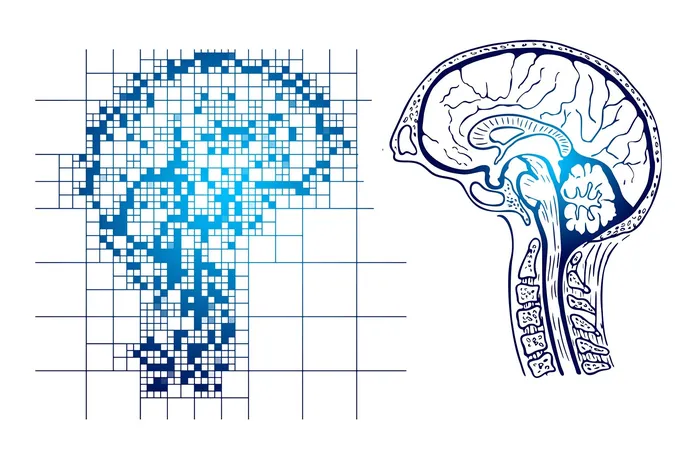
Breakthrough Discovery in Proteostasis Offers Glimmer of Hope Against Alzheimer’s Disease
2025-01-03
Author: Nur
Introduction
Scientists are racing against time to tackle the threat of neurodegenerative diseases, and they may have just unlocked a critical new strategy in this urgent battle. A groundbreaking study has unearthed a nucleolar complex that plays a key role in maintaining the delicate balance of protein homeostasis—called proteostasis—vital for cellular health. This could potentially transform our approach to diseases such as Alzheimer’s.
Key Findings
By specifically suppressing the FIB-1-NOL-56 complex, researchers demonstrated a significant decrease in the toxic effects of proteins associated with Alzheimer’s. This suppression helps bolster the cell's inherent defense mechanisms, enhancing the elimination of harmful protein aggregates that accumulate as we age—an alarming hallmark of neurodegenerative diseases.
Mechanism of Action
The mechanism behind this exciting discovery involves the modulation of TGF-β signaling pathways, which are crucial for controlling cell growth, differentiation, and the maintenance of tissue integrity. The implications of this work could usher in innovative therapies targeting neurodegenerative conditions, offering hopes for healthier aging and potentially a future free from the fear of diseases like Alzheimer’s.
Research Team
As we grow older, our proteostasis system—which ensures that proteins fold properly—can become compromised. This decline is directly linked to the harmful buildup of proteins that cause severe brain disorders. The research team from Hebrew University, which includes Prof. Ehud Cohen and student Huadong Zhu from the Institute for Medical Research Israel–Canada (IMRIC), along with Dr. Yonatan Tzur from the Alexander Silberman Institute of Life Science, has made significant strides in understanding this issue.
Study Publication
Published in the prestigious journal Nature Cell Biology, their study reveals that by inhibiting the nucleolar complex, the research team achieved a notable reduction in the toxic effects of the Aβ peptide, a primary culprit in Alzheimer’s, alongside other damaging proteins in model organisms. This finding not only sheds light on cellular stress management but also fuels hope for future treatments that could delay, or even prevent, the insidious progression of neurodegenerative diseases.
Conclusion
“Our findings go beyond the laboratory,” emphasizes Prof. Cohen. “The impact of neurodegenerative diseases reaches millions globally, profoundly affecting patients as well as their families. By revealing how our cells communicate to preserve protein integrity, we’re paving the way for preventive therapies that could extend the quality of life for the elderly and forestall disease effects.”
Real-World Implications
This research is more than just academic; it has significant real-world implications. As neurodegenerative diseases like Alzheimer's infiltrate nearly every family, the potential to slow down or prevent these conditions could lead to more cherished moments with aging parents and a decline in health emergencies, allowing millions of older adults to enjoy greater independence.
Future Outlook
The journey towards translating these scientific breakthroughs into practical treatments is just beginning, but the prospect of enhancing the lives of countless individuals is becoming increasingly tangible. With continued commitment to this line of research, we may soon enter an era where aging no longer equates to the looming threat of neurodegenerative disease, marking a transformative step toward a healthier future.




 Brasil (PT)
Brasil (PT)
 Canada (EN)
Canada (EN)
 Chile (ES)
Chile (ES)
 Česko (CS)
Česko (CS)
 대한민국 (KO)
대한민국 (KO)
 España (ES)
España (ES)
 France (FR)
France (FR)
 Hong Kong (EN)
Hong Kong (EN)
 Italia (IT)
Italia (IT)
 日本 (JA)
日本 (JA)
 Magyarország (HU)
Magyarország (HU)
 Norge (NO)
Norge (NO)
 Polska (PL)
Polska (PL)
 Schweiz (DE)
Schweiz (DE)
 Singapore (EN)
Singapore (EN)
 Sverige (SV)
Sverige (SV)
 Suomi (FI)
Suomi (FI)
 Türkiye (TR)
Türkiye (TR)
 الإمارات العربية المتحدة (AR)
الإمارات العربية المتحدة (AR)